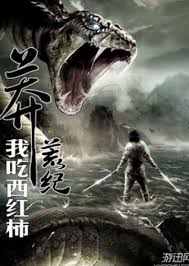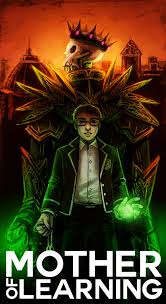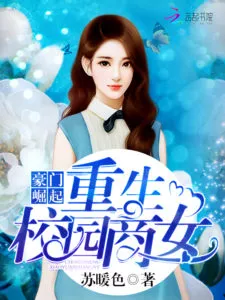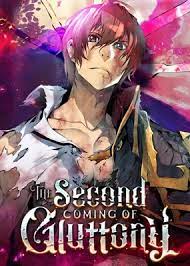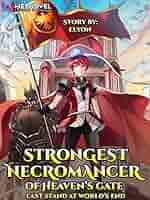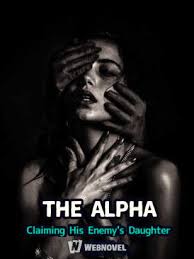The Story in 3 Sentences
Ji Ning begins as a mortal orphan, shattered by the destruction of his family and homeland, only to embark on a solitary path through the Desolate Era—a time of cosmic chaos, immortal wars, and endless cultivation.
Armed with the sword, the Dao, and an unyielding heart, he climbs through realms of power, facing demonic beasts, immortal tyrants, and existential voids, all while clinging to love, memory, and the belief that fate can be defied.
His journey is not just one of strength, but of meaning—where transcendence is not escape from suffering, but mastery over it.
Why It Stands Out
1. A Cultivation Epic with a Soul
The Desolate Era isn’t just about breaking through to the next realm—it’s about what that break costs. Every level-up is shadowed by loss, every victory tempered by grief. Fans praise its philosophical depth: the story meditates on fate, free will, and the nature of immortality. It doesn’t treat cultivation as a ladder to power, but as a path to understanding. In a genre full of shouting heroes, Ji Ning’s quiet introspection feels revolutionary.
2. Romance That Defies Death
His love for Su Youji isn’t a side plot—it’s the emotional core. Their bond is tested across lifetimes, shattered by fate, and rebuilt through memory and will. When she dies, he doesn’t just mourn—he defies the Dao itself to save her. This isn’t love as motivation. It’s love as transcendence. Readers call it one of the most heartbreaking and powerful romance arcs in xianxia, where emotional loyalty is as vital as sword mastery.
3. Scale That Swallows the Stars
The story starts in a mortal world and expands into a multiverse of chaos, primordial gods, and collapsing realities. The battles aren’t just between cultivators—they’re between concepts: order vs. chaos, fate vs. defiance, life vs. oblivion. Yet, amid this cosmic scale, the story never loses its intimacy. A single memory, a whispered name, a blade raised in silence—these moments carry as much weight as universe-shaking clashes.
Characters That Leave a Mark
There’s Ji Ning — a boy forged in loss, whose journey from mortal to transcendent cultivator is defined not by rage, but by love, memory, and the quiet will to protect what remains.
You’ll meet Su Youji, not just a lover, but a soul bound to Ning across lifetimes, whose death becomes the catalyst for his defiance of heaven and fate.
Then there’s Ji Ning’s Master, not just a mentor, but a guide who imparts not only sword techniques but Daoist wisdom, sacrificing himself to shape Ning’s path.
And the Loyal Companions? They’re the ones who stand beside him in the void—friends who fight, die, and rise again, proving that even in the loneliest cultivation path, brotherhood endures.
The Flaws Fans Debate
Length is daunting—over 1,400 chapters bring density, especially in mid-story cultivation explanations and philosophical monologues.
Pacing slows during introspective arcs—some readers find the existential musings enriching; others see them as pacing drags.
Translation quality varies—Daoist terms and poetic phrasing sometimes lose depth in English.
Romance vs. epic conflict divides fans—some want more focus on Su Youji, others prefer the cosmic battles and multiverse lore.
Must-Experience Arcs
Ch.1–400: Early Cultivation & Revenge Arc – Ning’s origin, the fall of his family, and his first steps into the martial world—where pain becomes the seed of power.
Ch.401–1000: Cosmic Battle & Mastery Arc – He ascends through heavenly realms, faces immortal emperors, and begins to unravel the true nature of the Desolate Era.
Ch.1001–1451+: Transcendence & Final Confrontation Arc – The final war against chaos, the resurrection of love, and the ultimate test of whether a mortal heart can outlast eternity.
Skip or skim: Repetitive Dao comprehension scenes, minor sect politics, and filler trials with little emotional impact.
Killer Quotes
“To live is to struggle; to cultivate is to transcend.”
“The desolate era is not the end but the beginning of eternity.”
“Fate is woven by those who dare to fight against it.”
“Love and loss are the true tests of immortality.”
Cultural Impact
Has earned a legendary status in the xianxia genre, often ranked alongside Coiling Dragon and Martial World as a foundational epic.
Inspired countless fan translations, art, and deep-dive analyses on Daoist philosophy in web fiction. Adapted into manhua and audio dramas, expanding its reach across China, Southeast Asia, and Western cultivation communities.
Frequently cited in discussions about emotional depth in power fantasy—proving that the strongest cultivator isn’t the one who breaks the sky, but the one who remembers a name.
Its blend of intimacy and cosmic scale has influenced a generation of long-form progression stories.
Final Verdict
Start Here If You Want:
A cultivation epic that values philosophy and emotion as much as power
A protagonist who fights for love, not just vengeance
A journey from mortal grief to multiverse mastery
Study If You Love:
Stories that blend personal loss with cosmic stakes
Daoist-inspired cultivation with real thematic weight
Romance arcs that shape the fate of worlds
Avoid If You Prefer:
Short, fast-paced fantasy without introspection
Minimal philosophical or emotional depth
Purely action-driven narratives without soul
